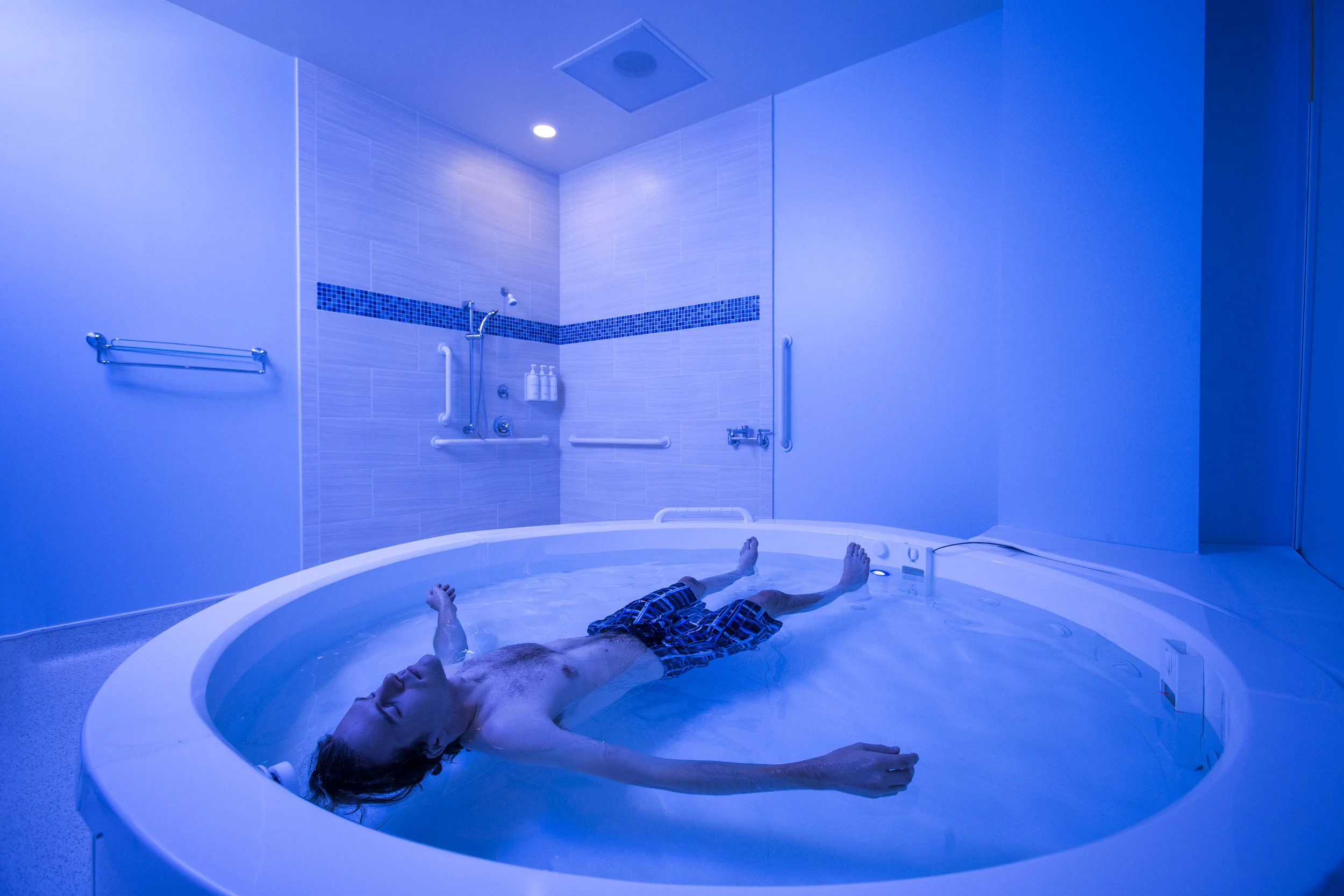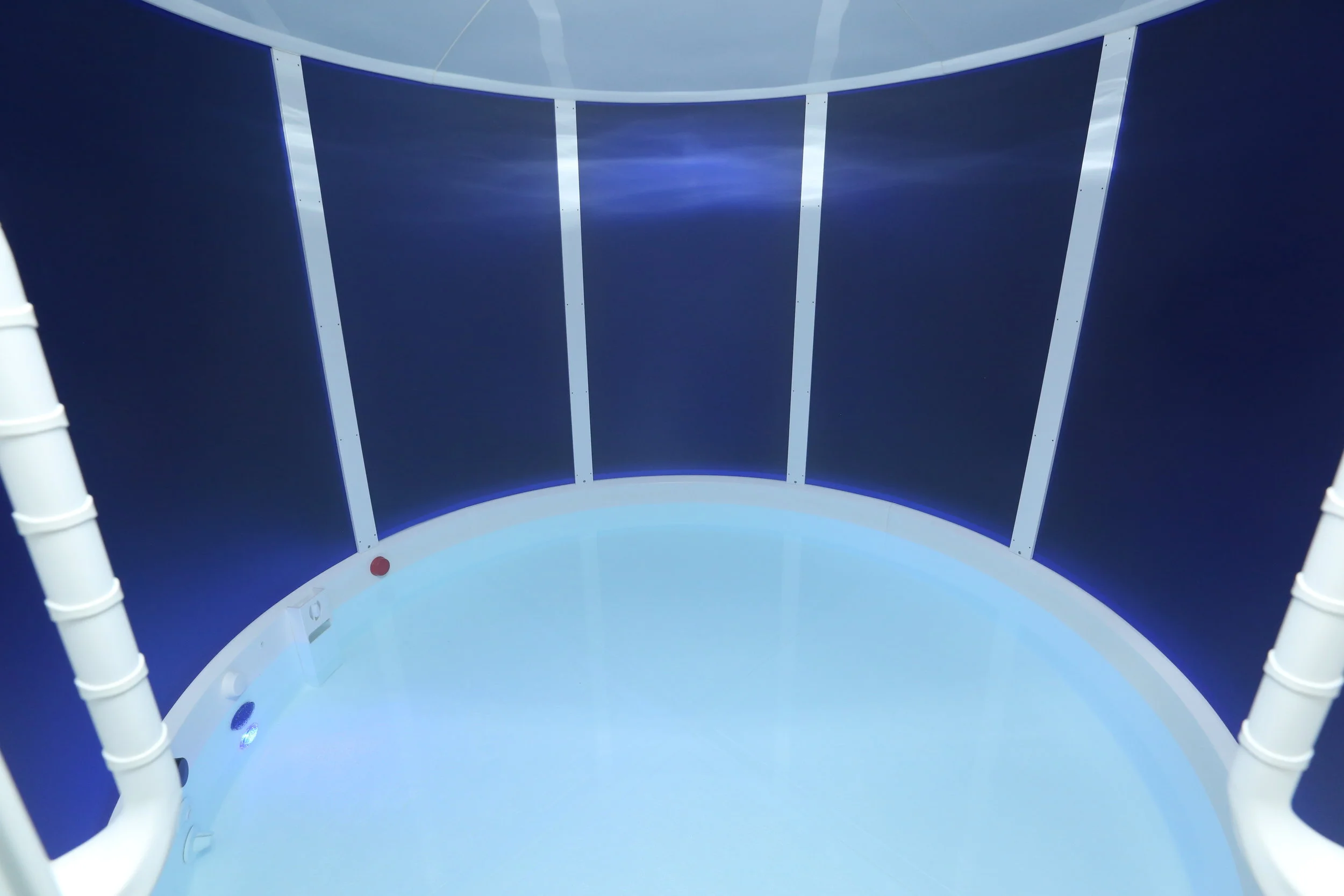





Medical Floatation
The official site
This is the official site to establish and promote the clinical use of medical floatation therapy as led by Dr Justin Feinstein Ph.D. Director, Float Clinic & Research Center, Laureate Institute for Brain Research (LIBR).*
Dr. Justin Feinstein's work was published 02/02/18. Clinically anxious people ALL reported significant benefits and improvement. This confirms floatation therapy as an important tool for wellness. The future implications are huge, as anxiety is so widespread. Read Floataway Chairman, Colin Stanwell-Smith’s summary here and find the link to the full study here
When it began, floating was used for research. Dr Jay Shurely in Oklahoma and Dr John Lilly in California were investigating human physiology and consciousness. Later in the last century, more research was done in America mostly on healthy students into various beneficial effects of floating. Meanwhile the commercial use of floating grew and then faded and then grew again in the 21st century.
Then in 2013 Dr Justin Feinstein decided to use floating for brain research aiming at clinical use. He had the advantage of modern technology such as the fMRI machine and EEG at the Laureate Institute for Brain Research ( LIBR) in Tulsa Oklahoma. He decided to use a round open pool for his research and started by looking at normal healthy people in order to set some baselines. This was the first time anybody had the opportunity to look at scans of the brain before and after floating and he did find the looked for changes.
Finally Dr Feinstein was able to start looking at clinically anxious subjects and comparing them to his normal research. Meanwhile his colleagues became interested in this new tool and there is considerable expertise at LIBR in interoception and eating disorders for example.
The results have been most encouraging. It now seems more than likely that floating will become a major tool for the study of the brain and mind and in particular will be of assistance in various kinds of mental health issues.
The results on anxious subjects justified the choice of a round open pool because it is the least threatening way to introduce floating to people who have never experienced it and are suffering from various forms of anxiety. We anticipate that it will become standard tool for both research and clinical use. Indeed following Dr feinstein's advice we have made a larger round pool nine feet diameter at the waterline, or 2.7 m, big enough for the tallest person and most people can float spread eagled without touching the sides. He also named the pool the Serenity from the often used anxiety serenity axis for assessing subjects.
We have started this website to focus on the research and clinical use of flotation both in history and at the current time. We will include technical notes on the development of the facilities required and Layperson summaries of the various published papers.
There are pages on Interoception, the important new interpretation of how the brain works and the development of personality and consciousness. And of mental illnesses based on anxiety such as PTSD and anorexia. We will reproduce published papers as they come out with explanatory notes.
While we will not cover the issues arising in commercial float centres we will be looking out for the anticipated development of hybrid centres where both commercial floating and clinical floating can be combined with the collaboration of researchers, clinicians and insurance companies.
To help manage this we are developing the Floataway portal which is a comprehensive hardware and software system for datalogging, booking and reporting on research and clinical matters.
We gained a lot of experience at LIBR in the important issue of the air temperature and humidity. Building on this we will be able to offer good value air heating and humidity control solutions for converting rooms into open float pools.
Dr. Justin Feinstein
At LIBR we are studying a range of different conditions that all feature high levels of anxiety including Posttraumatic Stress Disorder (PTSD), Panic Disorder, Anorexia Nervosa, Generalized Anxiety Disorder, and Major Depression. Thus far I have been truly inspired by the results, with patients reporting significant short-term improvement in depression and anxiety after floating. More than simply reducing symptoms of mental illness, the float experience seems to enhance mental wellness, allowing patients the opportunity to experience life in a peaceful and serene state. It should be noted that many of these patients have tried other forms of treatment, including medication and psychotherapy, and unfortunately none of these other treatments have provided much in terms of relief. What has been truly remarkable is that many of these treatment-resistant patients have found that Floataway's circular pool provides them with a level of relief that has been unobtainable through other methods.
More information about our research program can be found on our website, as well as in a recent TIME magazine article featuring Floataway’s circular Tranquility Pool. Please do not hesitate to contact me if you should have any further questions.
Sincerely,
Justin Feinstein, PhD*
Director, Float Clinic & Research Center
Laureate Institute for Brain Research
*Dr. Feinstein has no financial interest or investment in Floataway. In addition, Floataway is not directly involved in any of the research being conducted at LIBR and has no role in the study design, study funding, data collection, data analysis, or reporting of results.